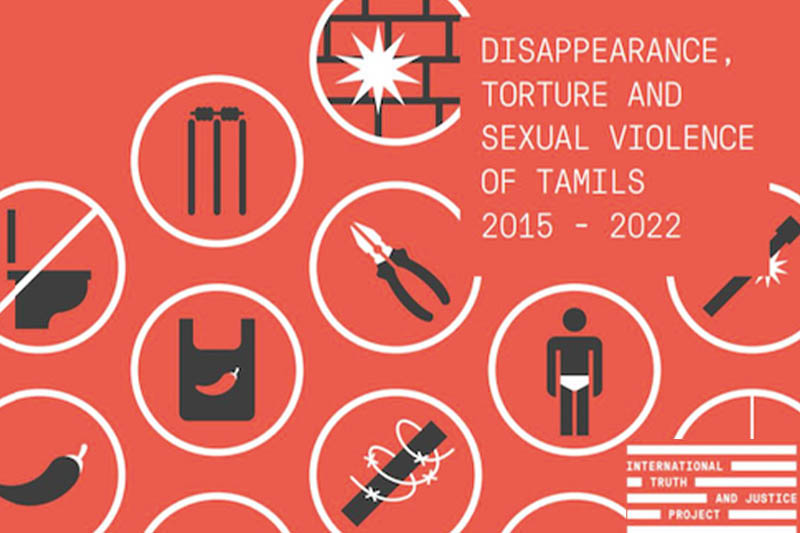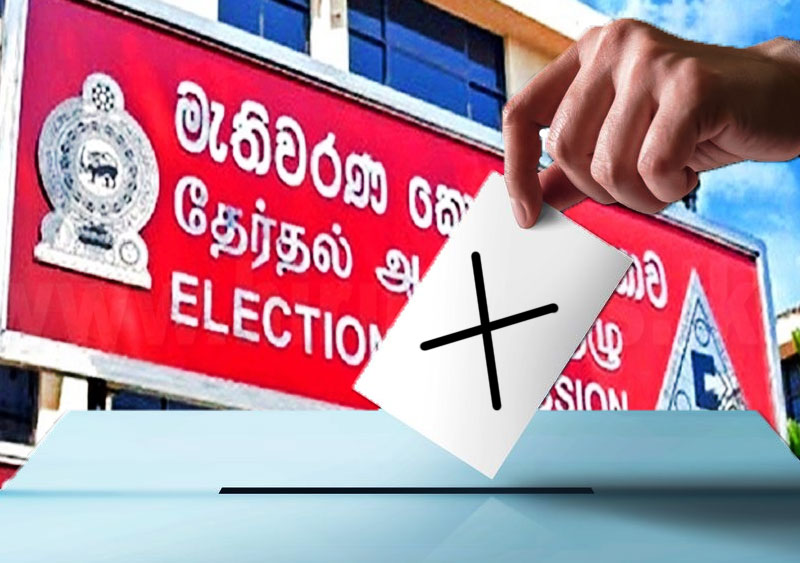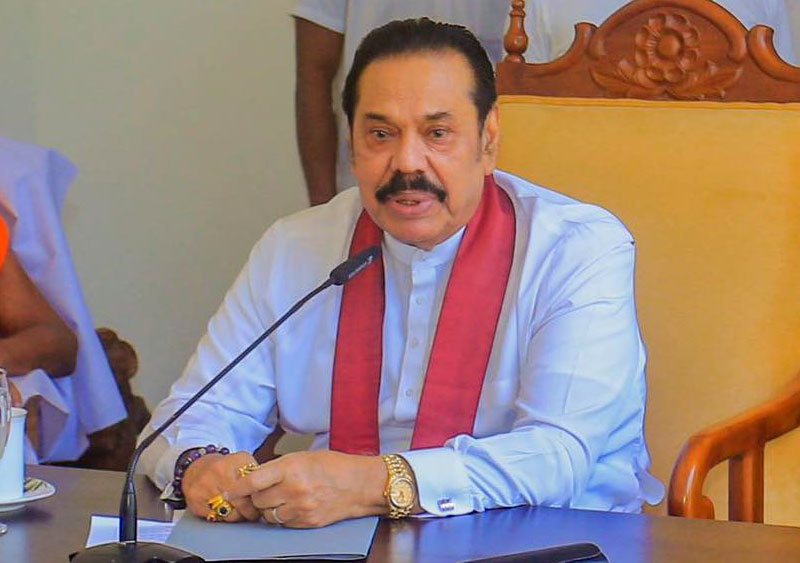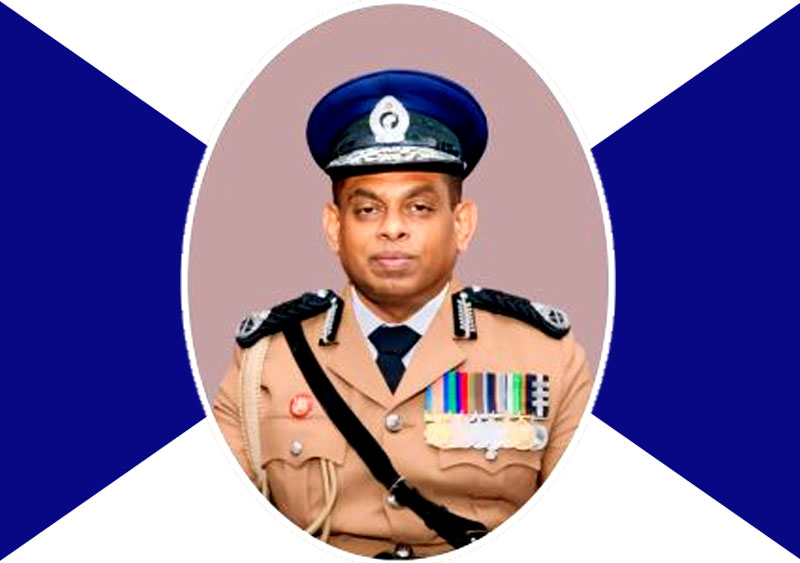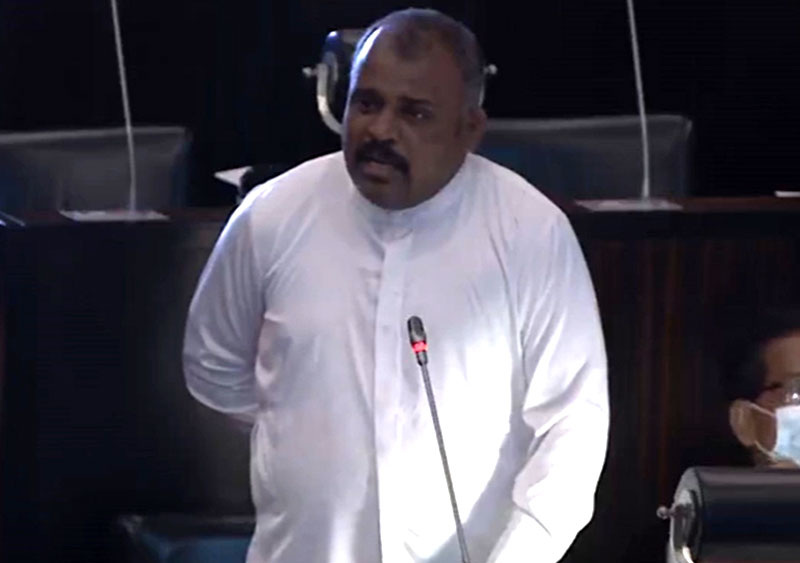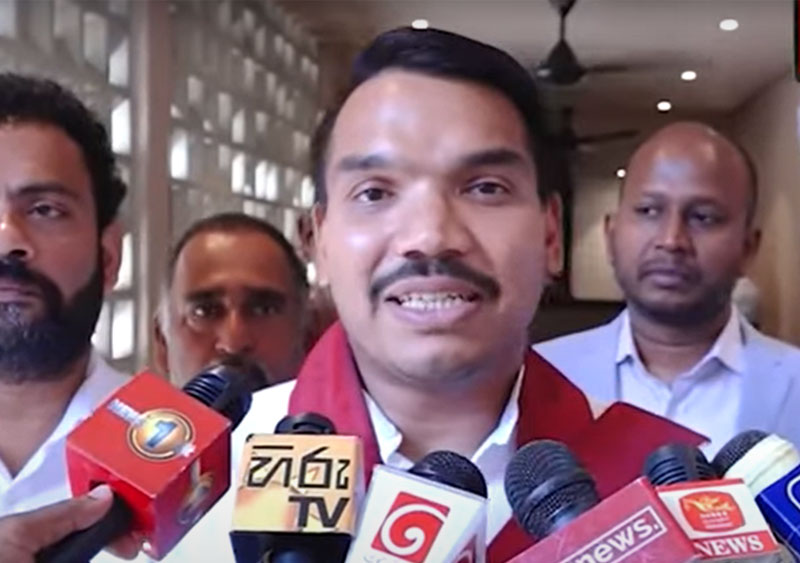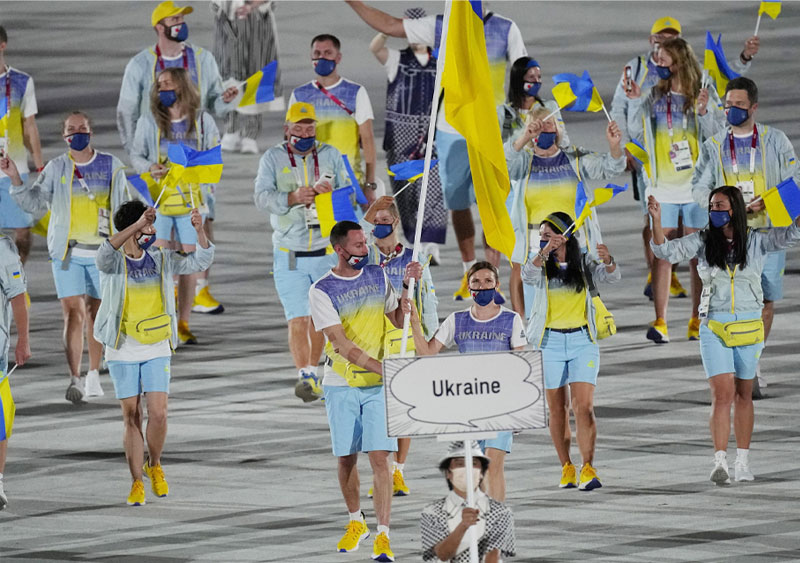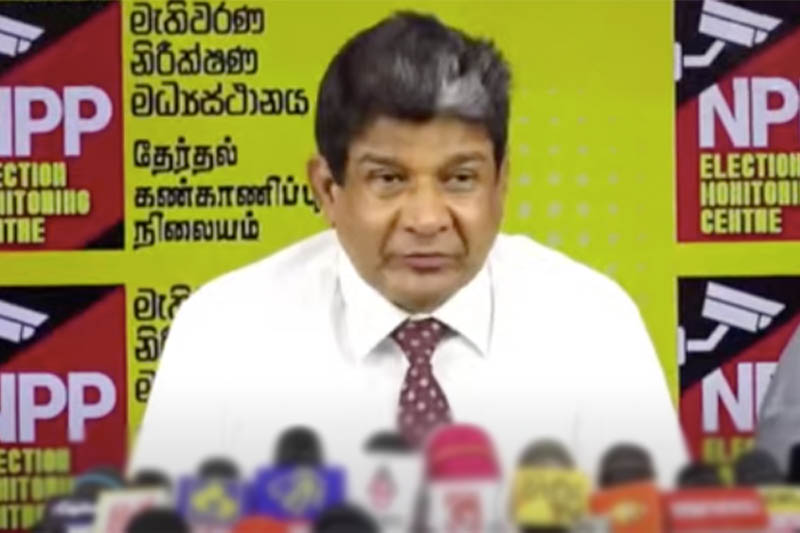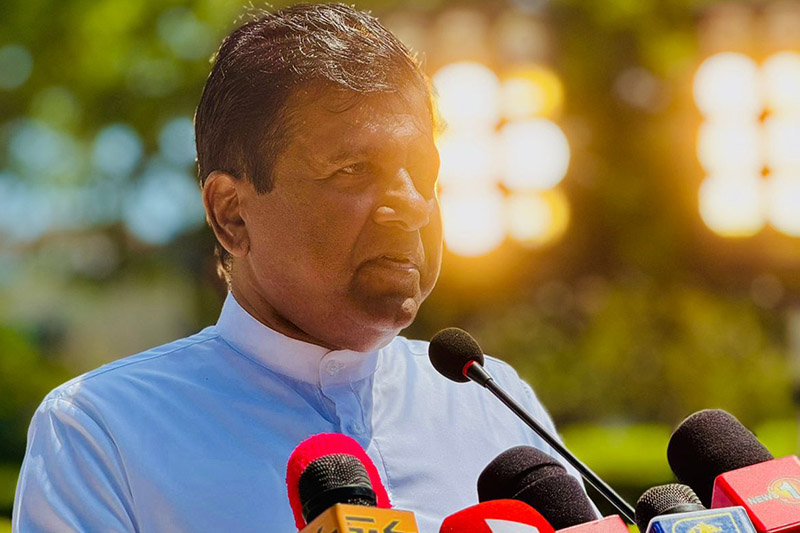A damning report by a leading international watchdog has revealed continued abduction and torture including sexual abuse of Tamils even 15 years after the brutal civil war came to a bloody end.
The situation is not different under the regime of the present President Ranil Wickremasinghe who came to power in July 2022 following the ousting of the war-crimes accused former President Gotabaya Rajapaksa by the popular uprising ‘Aragalaya’.
At least 11 such arbitrary detentions took place in the six months since President Wickremesinghe took charge as President through a parliamentary provision.
“Sri Lankan security forces continue to abduct and disappear young Tamil men and women, and subject them to serious physical sexual torture” the new report by the International Truth and Justice Project (ITJP) has revealed.
The report is based on the testimonies of 123 Tamils both male and female in the age group between 20-39. For fear of safety and life, the Tamil victims whose testimonies form the basis of this report all now live in exile outside Sri Lanka.
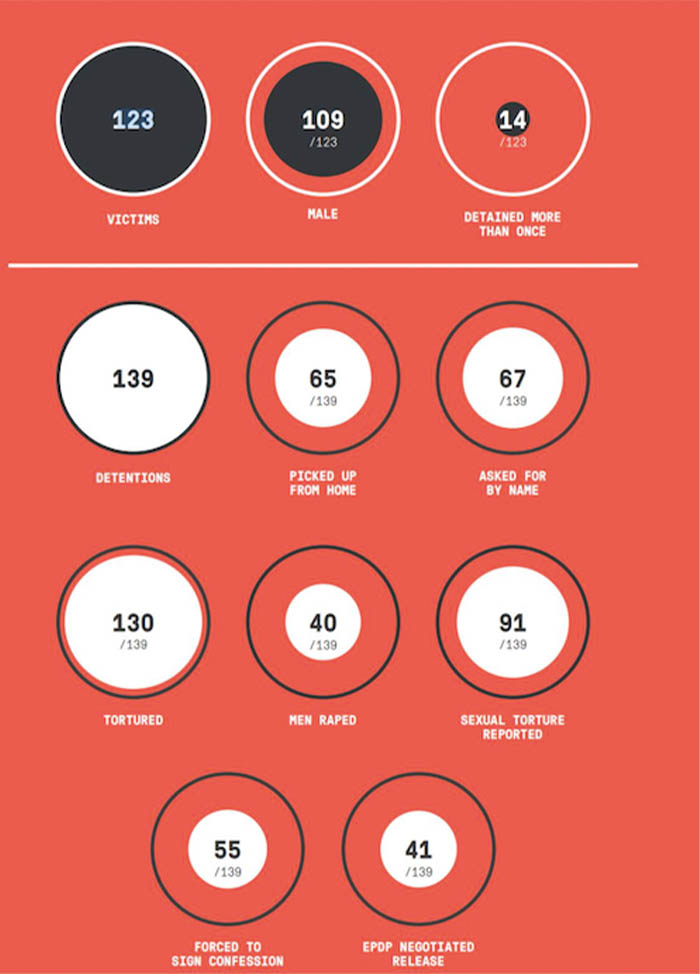
ITJP says their latest report covers seven years during which time the war-affected Tamils were unlawfully picked up and detained by the state security forces a total of 139 times.
Its report further said the methods used by the Sri Lankan security forces were similar to what happened in 2009 since the war ended and included abduction, disappearance, and torture against those former LTTE cadres and the Tamil civilians who either surrendered or handed over to the army by their families after the war ended.
The constitutionally mandated Office for Missing Persons (OMP) has not even found a single person who went missing after they were handed over or surrendered to the security forces.
“Impunity is generally defined as the wielding of power without facing any consequences for the commission of crimes, and which over time becomes deeply ingrained within political systems and cultures. In Sri Lanka, impunity has been entrenched over decades without any accountability for serious international crimes committed by the security forces”, said ITJP’s Executive Director, Yasmin Sooka.
Expressing deep dismay about the continuing culture of impunity she fears the Tamils will continue to suffer if the international community remains a mute spectator.
“It is unlikely to stop unless the international community exerts greater pressure on Sri Lanka to deal with security sector reform and root out those officials responsible for this culture of violence directed against Tamils. The individuals who gave the statements analyzed in this report are only a small subset of all Tamils who claim asylum in the UK or elsewhere.”
Out of the 139 detentions analyzed by the ITJP 65 persons were picked up by the state agencies either from their own home or that of their relatives, witnessed by the family members. Tamils were also picked up on their way to and back from work.
In a stark reminder of wartime atrocities, those Tamils abducted recently and who bore testimony in the ITJP’s latest report were blindfolded, with their hands tied behind, and bundled into a white van. Subsequently, most were taken to unknown locations with the families being kept in the dark.
While being held at such secret detention centers, the detainees according to their testimonies were tortured, the least being severely beaten.
Torture methods include suffocating with a polythene bag, and burning by cigarettes or other heated objects. Close to 50 detainees were subjected to forced drownings while more than 30 were suspended by ropes. Witnesses said they were forced to undergo multiple forms of torture.
In March 2022, a 28-year-old man was picked up in Jaffna, the hotbed of Tamil politics by men in civil clothes, and detained for 10 days.
Speaking about the ordeal he suffered at the hands of the security forces he told ITJP: “A petrol-soaked polythene bag was put back over my head. They repeated this four or five times before dragging me to a plastic barrel filled with water. My head was submerged repeatedly for what felt like half an hour. Every time my head was lifted out so that I could breathe, I was told to tell the truth and provide them with some names. I was so exhausted I collapsed to the floor and was dragged back to the room where I was kept.”
Sexual torture was no exception. The brutality was so gruesome it included at least one of the five kinds of sexual violence: the squeezing of genitals; forced oral sex; penile rape; anal rape with a rod; and forced masturbation. Among the 51 detained who were raped, 11 were women.
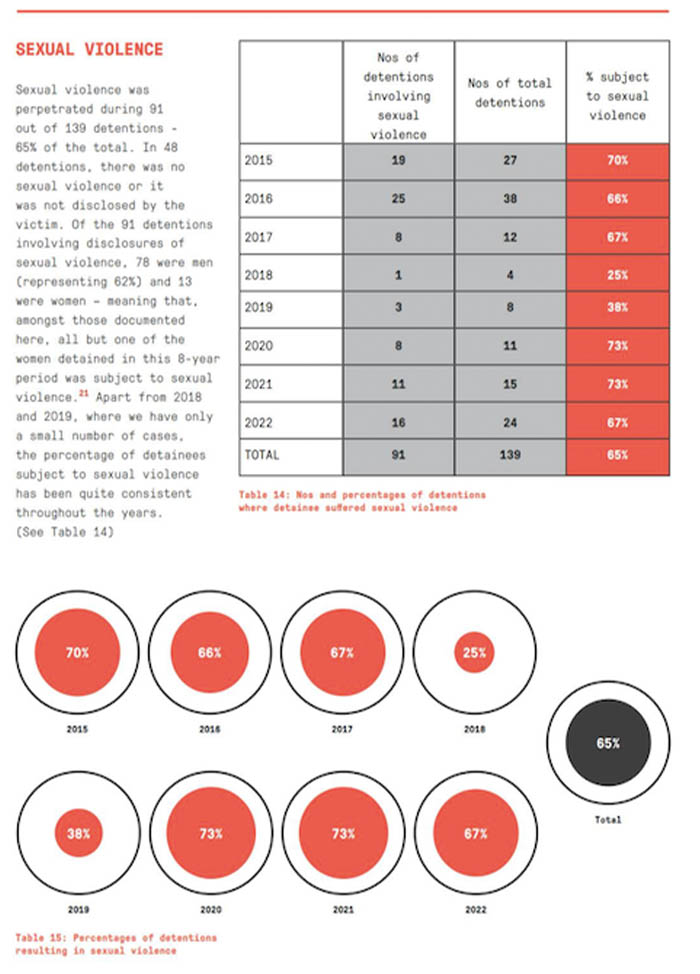
“The number of abductions, detentions, torture, and sexual tortures illustrate how systematic and widespread these violations amounting to serious crimes are,” the ITJP report says.
Volker Türk, the UN High Commissioner for Human Rights, expressed his deep concern about the Human Rights situation in Sri Lanka, in his report to the Council during its 55th session in March this year (2024).
“I remain deeply concerned about recurring, credible accounts received by my office of abductions, unlawful detention, and torture, including sexual violence, by the Sri Lankan police and security forces, some of which allegedly took place in 2023, mainly in the north and east of the country.”
Sri Lanka’s foreign ministry claims that the government had taken multiple steps since the end of the war to address human rights concerns and promote reconciliation including releasing land to Tamil owners, limiting the military to camps in the north and east of the country, and appointing officials to look into cases of people reported missing.
"We look at human rights as a continuous process... and we are committed to engaging with international partners including non-governmental organisations to take the reconciliation process forward," Tharaka Balasuriya, state minister of foreign affairs had told Reuters when asked about the ITJP report.

